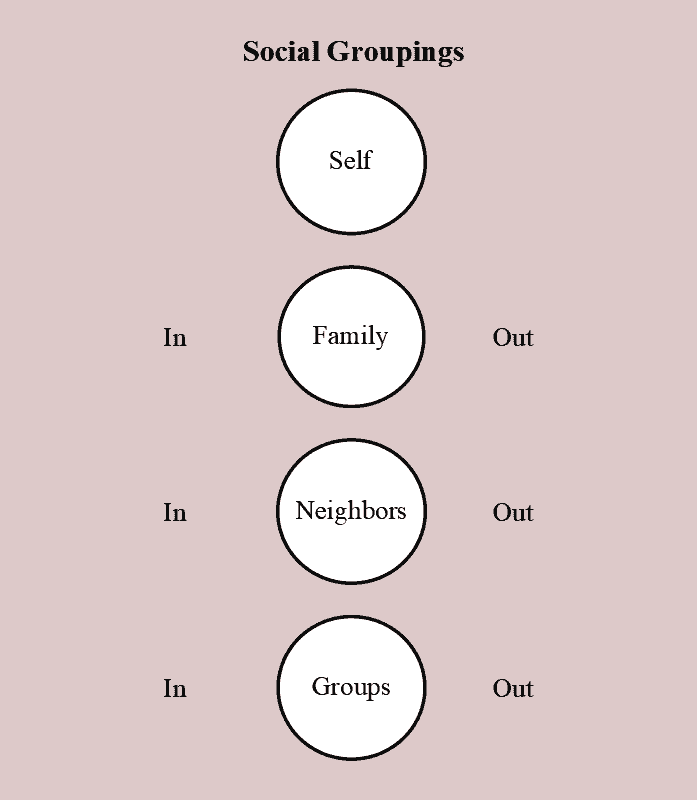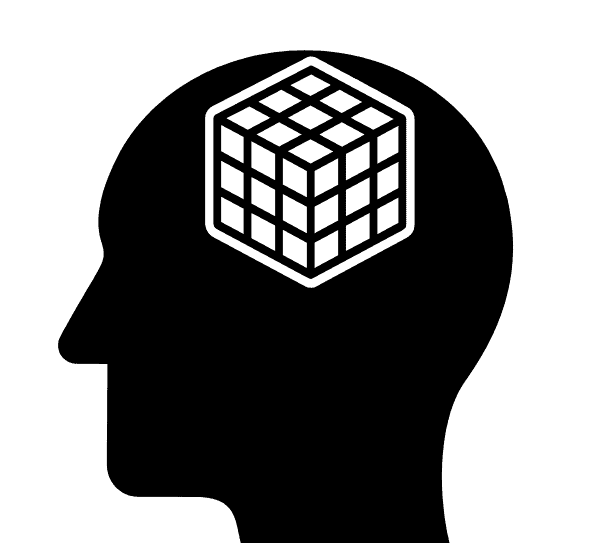Natural Social Groups
We naturally see ourselves as the center of our universe. At birth, it is self only.
As we learn to distinguish our mother from others, we form an intense social bond, but let’s start with the family as the first group with more than two members. We group people as in the family or not.
As we grow, we meet and remember our neighbors. They, too, form a group. Everyone is either a neighbor or not. Some people may belong to both the neighbor group and the family group. Others may be family, relatives that do not live in the household, and not neighbors. You get the point. People can be in multiple groups, whereas others may be in a single group.
When we are old enough to attend school, we enter a new group. Schoolmates or not.
I’m sure you can think of many groups you belong in while others you are not part of. Religious affiliation provides its own grouping. Citizenship or not. Immigrant or not. Legal and illegal immigrants provide separate groups, whether those out of immigrant group learn the distinction. White collar, blue collar, red neck are groupings with various economic and social class markers.
Let me show my simplified chart. (I show it because not everyone prefers verbal explanations.) A person is either in the same group that you identify with or not.

Fundamental Attribution Error
Personal decisions and choices are determined by our personality and the situation we’re confronted with.
We judge our choices differently than we judge others’ choices. Psychologists call this natural tendency—the fundamental attribution error (FAE). The fundamental attribution error is the tendency to attribute another’s behavior to their personality, while our behaviors as due to our personality when successful and to situational issues when we are unsuccessful. We ignore the situational issues when considering the choices of others.
We do not always fall prey to the FAE, but certain factors tend us to rely on it. For instance, if we hurried. It is quicker and easier to assume the other person selected an action because that’s their nature (personality) than it is to find out the situational factors that may have driven their choice. We use FAE when watching the news, talking with friends, and whenever we consider others.
Another reason we use FAE is a type of mental shortcoming. We lack the desire, the ability, or the knowledge to fully consider the influence of situational factors on people’s behavior, so we rely more on explaining other people’s situations by personal choice rather than the situation that led them to their decision.
Two Examples
If that’s not clear, let’s consider two very simple but concrete cases.
Case 1: A person is late for a meeting.
If they are late, it’s because they’re inconsiderate or selfish (a flaw of personality).
While if you are late, it is because of traffic you had to deal with (a situational cause).
Case 2: A person works on a project.
If their project fails, that’s because of their personal shortcomings.
If you taste failure, you emphasize the situational difficulties and minimize any of your own shortcomings.
Deciding Responsibility
How does this tie in with natural social groups? We often employ the fundamental attribution error to assess the behavior of others.
If the person is ‘in group’, we interpret their behaviors leniently. If their choices are poor, it’s because of the situation they are in.
However, for those in the ‘out group’, we interpret their behaviors sternly. If their choices are poor, it’s because they are lacking in a needed personality strength.
Obviously, the Fundamental Attribution Error supports stereotyping and, often thereafter, prejudice against members of the ‘out group’.
Finally, the Fundamental Attribution Error explains how people can forgive members of their ‘in group’ for the same action that they disparage in those of their ‘out group.’
Additional Information
The Fundamental Attribution Error and Impact


